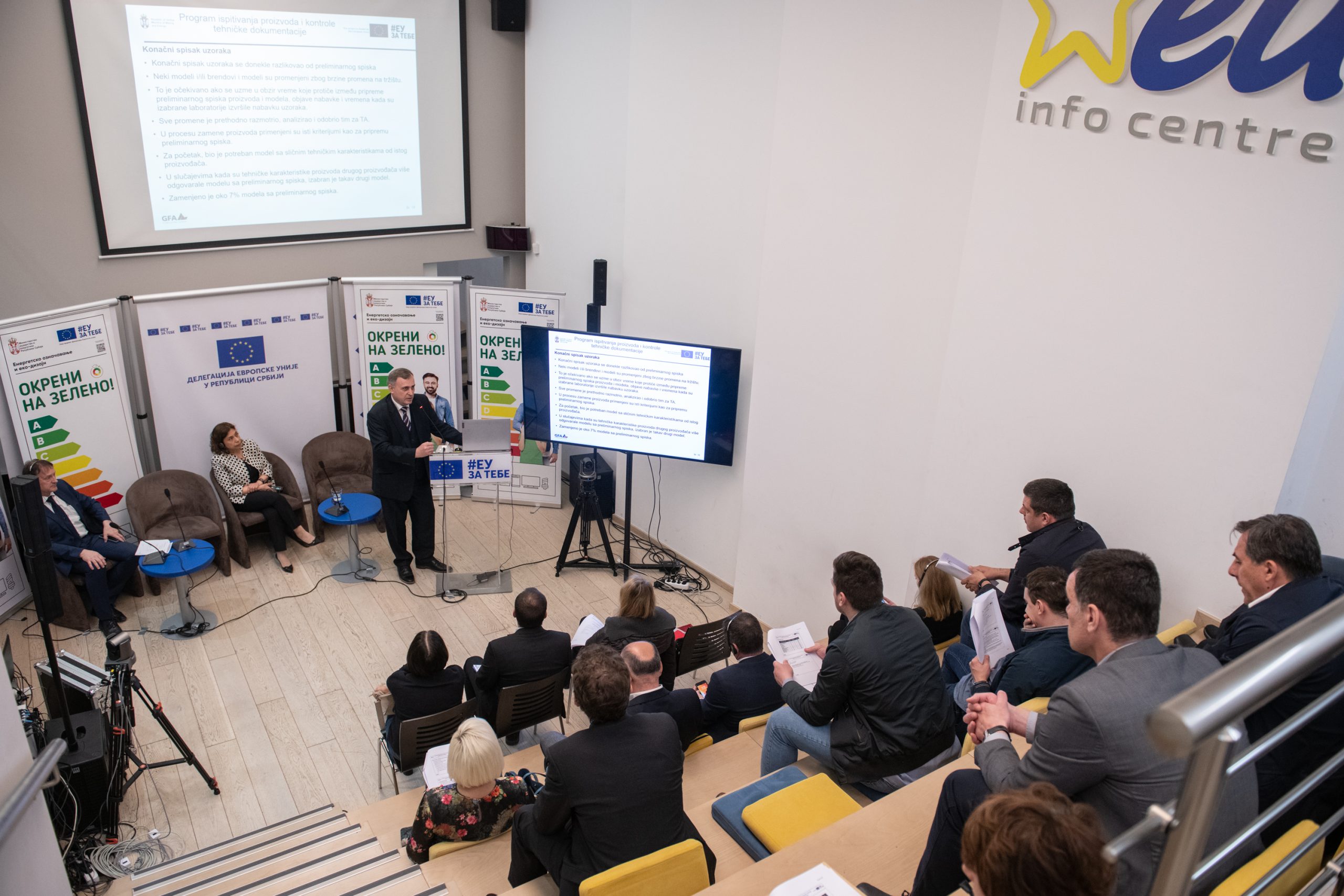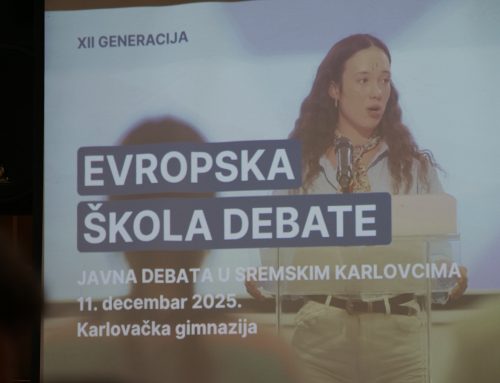It matters which household appliances we use. Appliances of the lowest energy efficiency class “G” consume twice as much electricity compared to the highest class “A”. Energy is getting more expensive, and citizens are becoming aware that in addition to reducing their own household expenses, they can also positively influence the environment by making smart choices. The Project “EU for Energy Labelling and Eco-Design” played an important role in increasing the awareness of Serbia citizens about this important topic, and the final conference of the project was held today in the EU Info Centre in Belgrade.
Boris Ilijevski, Project Manager of the EU Delegation to Serbia, emphasized the good cooperation of all involved parties as the key to the success of the project.
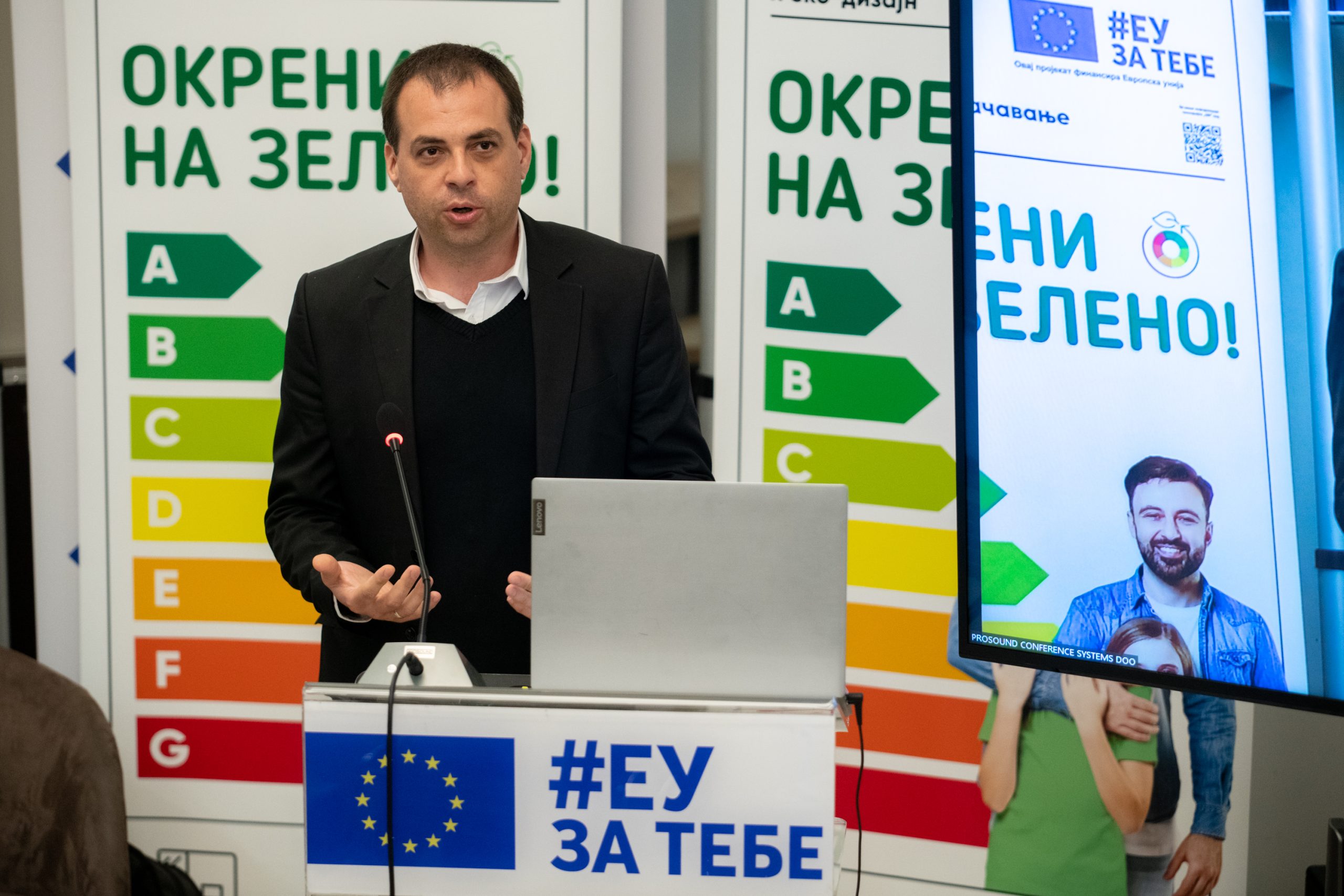
“The defined project goals were met primarily due to the good cooperation of the Ministries, the project team and other involved parties. Business planning was challenging during the difficult times at the beginning of the Covid pandemic, but that was also resolved”, said Ilijevski and added that the EU will continue to support Serbia as it has done so far:
“Energy efficiency is the principle on which the entire future climate change and energy policy of the European Union is based. The Instrument for Pre-accession Assistance (IPA 2021) is in the final stage of preparation and will be signed by the end of the year. The EU will continue to support Serbia on the way to achieving greater energy efficiency.”
Antonela Solujić, Head of the Energy Efficiency Department in the Ministry of Mining and Energy, expressed her satisfaction with the successful completion of the project.
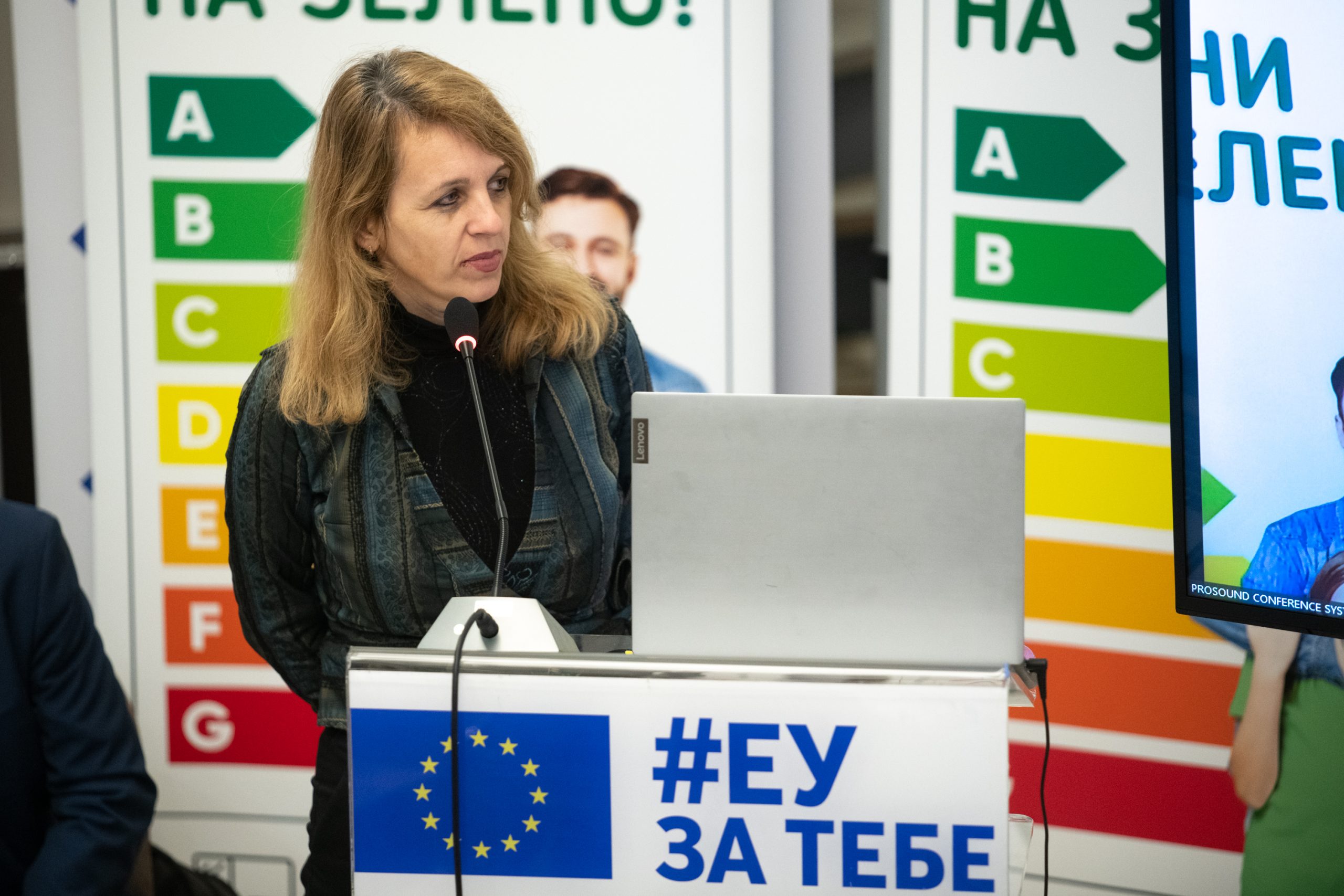
“This project was of utmost importance for the Ministry. I would like to thank the Delegation of the European Union in Serbia, the project team and all other project participants. I hope for the successful implementation of the regulations on energy labelling and eco-design in the future and that the whole society will benefit from it”, emphasized Solujić.
Bernard Gindroz, Team Leader, reminded everyone that the project was supposed to help Serbia and the Ministries in establishing all parts of the regulations and setting the scene for energy efficient household appliances, eco-design and energy labelling of products. Raising citizens’ awareness on the topic was another important project component.
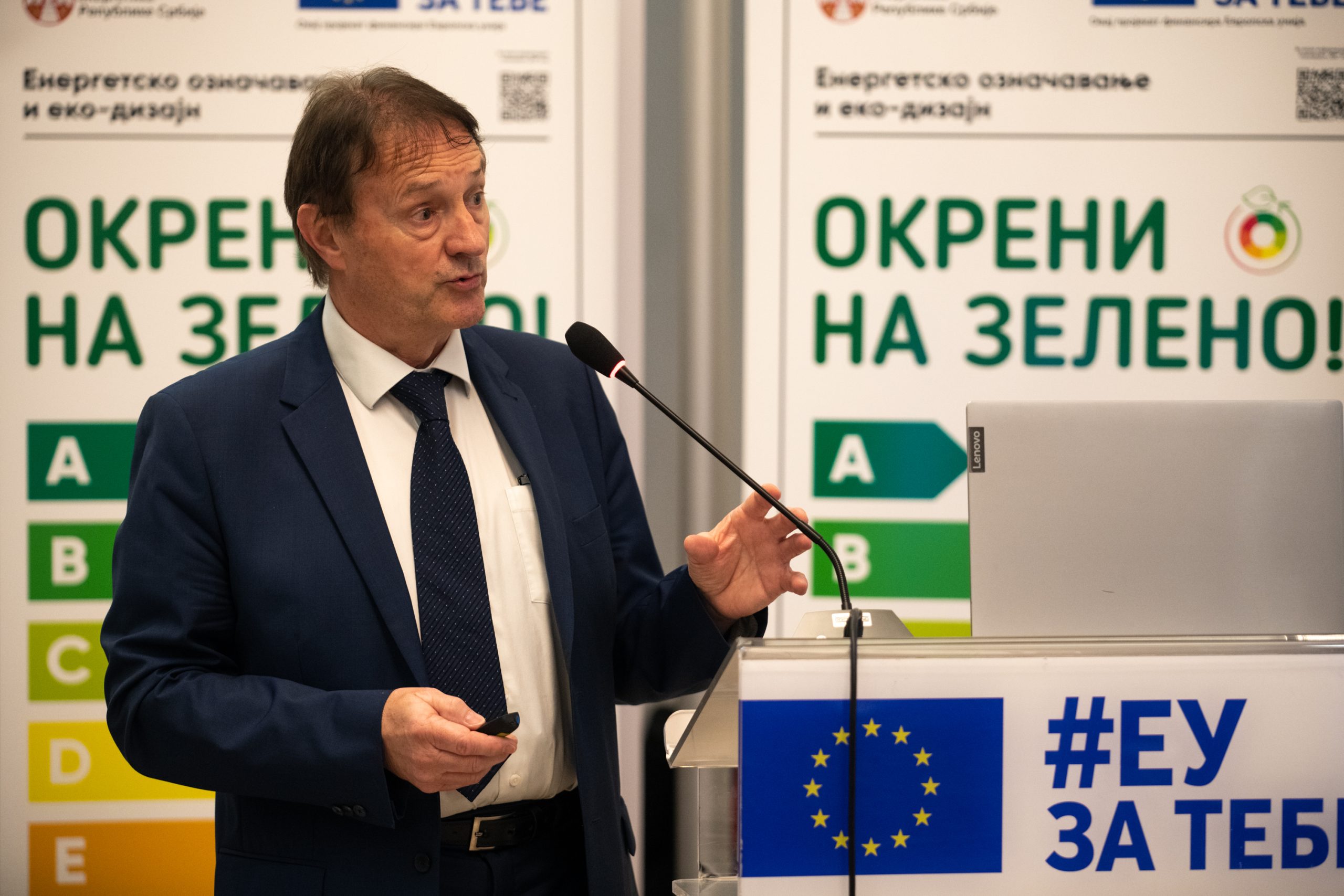
“The purpose of the eco-design component is to ensure that we have products on the market that are truly energy efficient. As for energy labelling, it was necessary to provide citizens – buyers with all the criteria that will help them make a decision on purchasing high-efficiency devices. There is a direct benefit for all the citizens, but also for the country in terms of energy capacity and consumption.”
“We should continue to raise awareness about the importance of energy efficiency, ensure that the market database is updated, and continue to increase the capacity of the market inspection and testing agencies for household appliances. We also need to speed up the general increase in Serbia’ energy efficiency for the benefit of citizens and the planet”, concluded Gindroz.
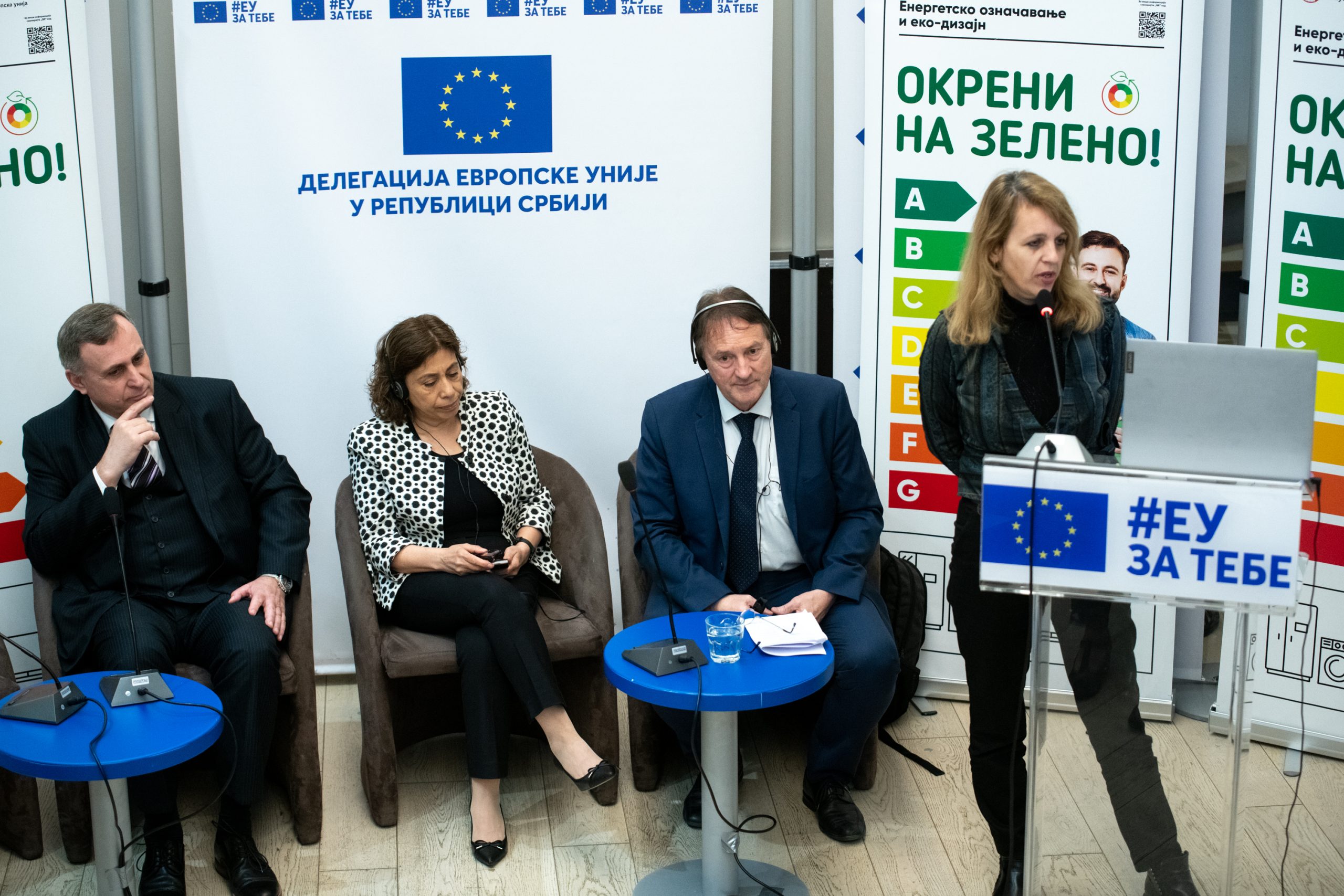
“EU for Energy Labelling and Eco-design of Products”, for which the EU provided almost EUR 1.5 million in grants, as part of the project activities, implemented a national communication campaign, in order to make Serbian citizens better acquainted with the meaning of energy labels on household appliances. This enables the citizens to choose more energy-efficient appliances, save money and, at the same time, protect the environment. This campaign is part of the “Turn to Green” energy efficiency campaign of the Ministry of Mining and Energy of the Republic of Serbia and the European Union.
The European Union is a bigger donor than all other international donors combined. In the past two decades, the EU has invested more than EUR 830 million in the energy sector. In 2022 alone, the EU support to Serbia’s energy sector is estimated at EUR 100 million.
Diversification of energy sources, security of supply, energy efficiency and decarbonisation of the economy, in accordance with the Paris Agreement, are the main objective of EU support. The support of the European Union is realized in cooperation with the Government of Serbia. The EU will continue to support Serbia in its EU acquis harmonization and creating structures that will enable further investments in the decarbonisation of the energy sector.
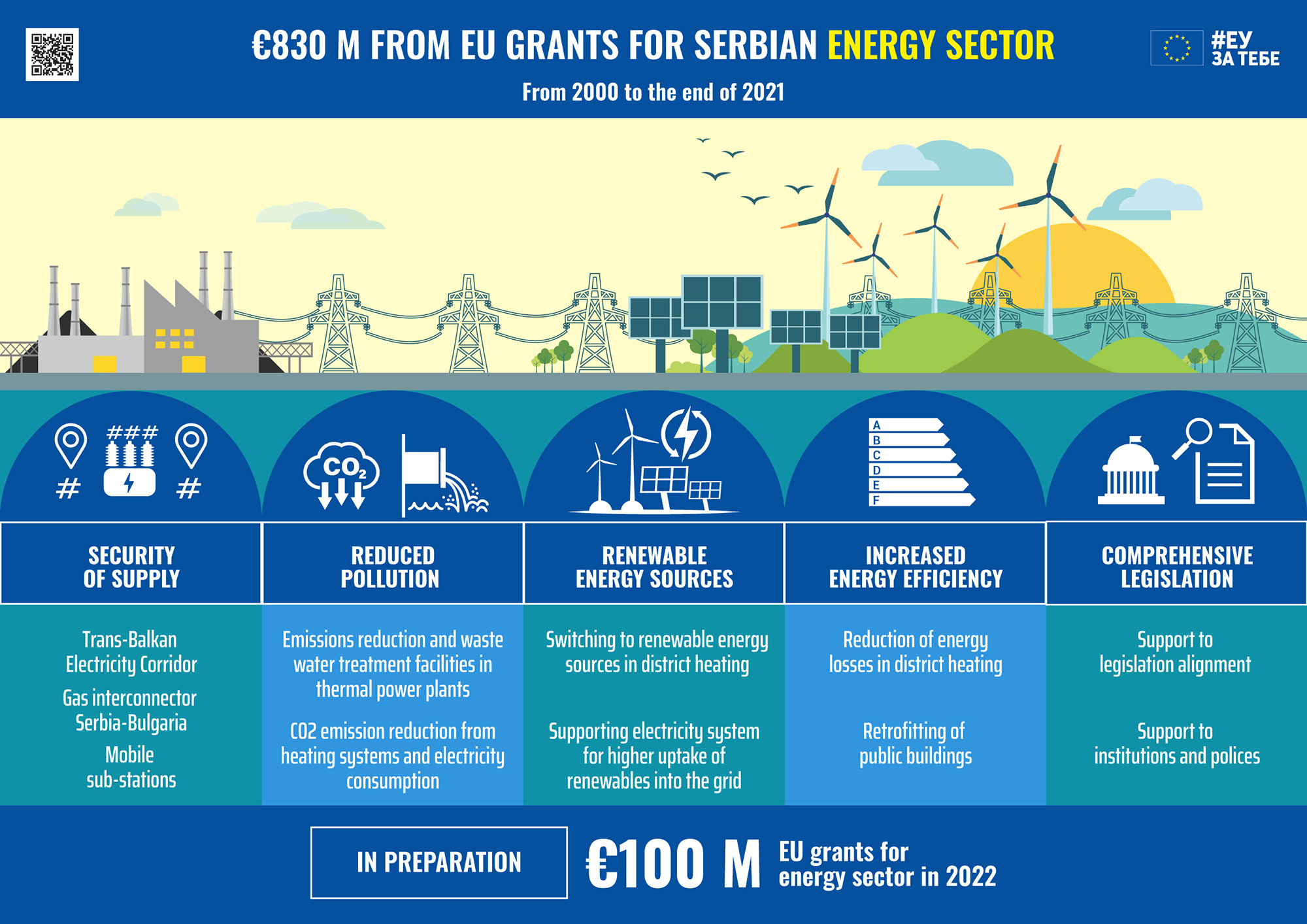
The European Union is the largest donor for Serbia in the energy sector, with investments amounting to more than EUR 830 million of grant funds from 2000 until the end of 2021. In Serbia, the EU finances projects aimed at security of supply, diversification of energy sources, market liberalization and improvement of energy efficiency. The ultimate goal is to reduce pollution and mitigate climate change, which are also the goals of the European Green Deal and the Green Agenda for the Western Balkans, which Serbia supported in 2020.

